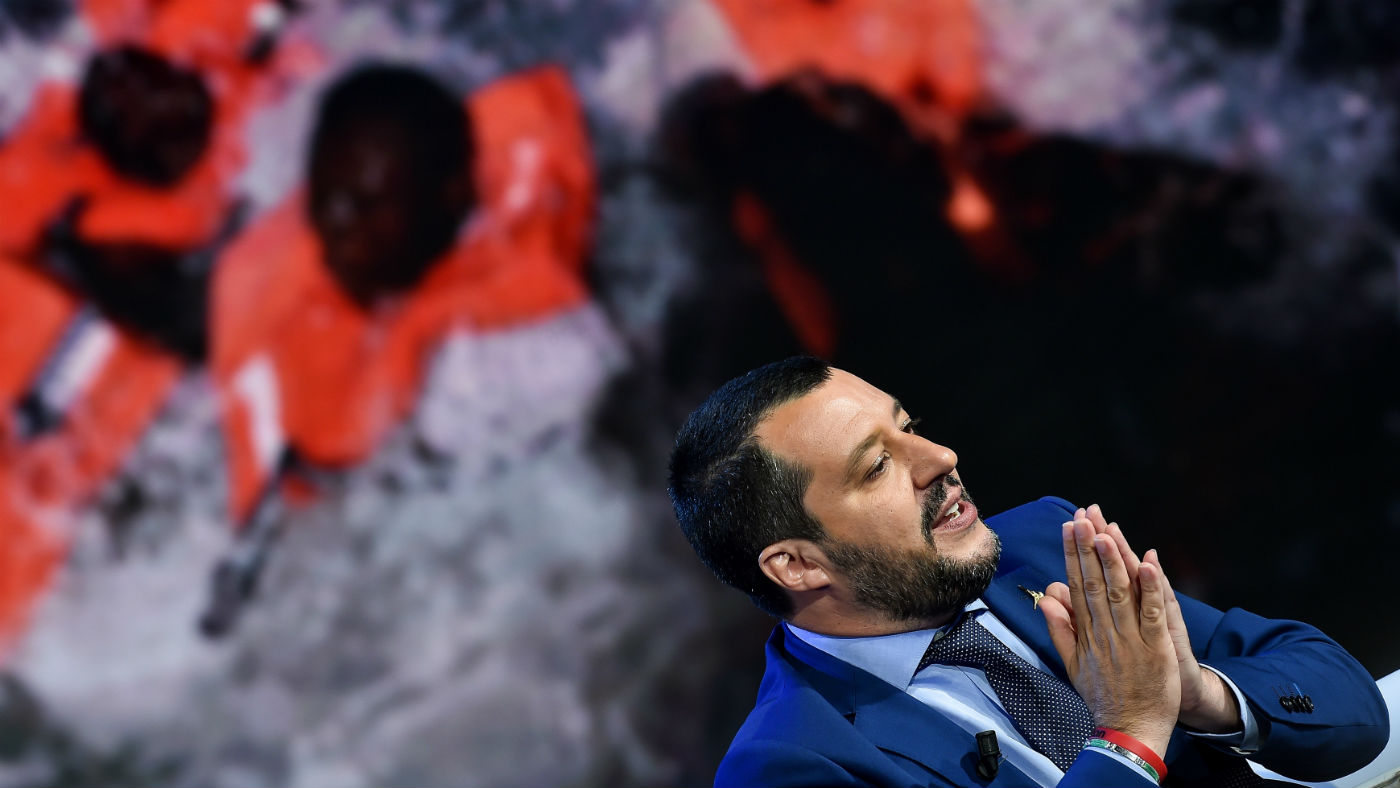Matteo Salvini ‘kidnapping’ case splits Italy’s ruling coalition
Deputy prime minister will not be tried over refusal to allow 177 asylum seekers to disembark from rescue ship

A free daily email with the biggest news stories of the day – and the best features from TheWeek.com
You are now subscribed
Your newsletter sign-up was successful
Italy’s deputy prime minister will not be tried for refusing to allow asylum seekers to disembark from a rescue ship last year, after the country’s senate blocked a criminal case against him.
In January, an Italian court ruled far-right League leader, Matteo Salvini, who also serves as interior minister, should be tried for the “kidnapping” of 177 asylum seekers he prevented from disembarking the Italian coastguard ship Ubaldo Diciotti last August.
Salvini sought immunity by arguing he acted in the interests of Italians, having previously said he was ready to be tried and was proud of “having defended the country from illegal immigrants”.
The Week
Escape your echo chamber. Get the facts behind the news, plus analysis from multiple perspectives.

Sign up for The Week's Free Newsletters
From our morning news briefing to a weekly Good News Newsletter, get the best of The Week delivered directly to your inbox.
From our morning news briefing to a weekly Good News Newsletter, get the best of The Week delivered directly to your inbox.
The Guardian reports the investigation “posed a political risk to Italy’s governing coalition as well as a personal risk to Salvini”, as one of the founding principles of his Five Star Movement (M5S) coalition partners is that politicians under investigation should be asked to resign.
“Until two years ago, this principle was written into 5-Star’s statutes as part of an attempt to distance itself from corruption in Italian politics, and Wednesday’s vote has caused rifts within the movement,” says the Guardian.
Following an online ballot of members last month in which 59% voted to protect the deputy prime minister, “5-Star leaders have justified backing Salvini’s immunity by arguing that his actions were part of government policy, saying he refused to allow the migrants to disembark until arrangements were worked out with other European Union countries”, Bloomberg says.
With the support of 5-Star leader Luigi Di Maio, 232 Italian lawmakers voted on Wednesday to defend his parliamentary immunity – meaning prosecutors will, therefore, not be able to try him.
A free daily email with the biggest news stories of the day – and the best features from TheWeek.com
However, two 5-Star senators who said they would ignore the member ballot and vote against their coalition ally “are expected to be expelled from the movement, which would reduce the government's already slim Senate majority”, reports Euronews.
The decision to refuse entry to migrant boats and the subsequent vote to block the criminal case against the deputy prime minister has also deeply divided the public.
After years in which Italy bore the brunt of Europe’s migrant crisis, a large section of the population have praised efforts to stem the tide of people landing on its southern shores, providing the anti-immigrant nationalist League with a boost in the polls.
Seeking further political advantage, Salvini’s tough stance on immigration surfaced again this week, as he moved to block a ship carrying about 50 migrants seeking to dock in the southern port of Lampedusa.
Others, however, are horrified at what they see as a deliberately inhumane policy, claiming the far-right are using the threat of a new migrant crisis to boost their standing in the polls ahead of the European Parliamentary elections.
Far from a fresh wave of migrants arriving on the country’s shore, “an Italian-led push to disrupt smuggling networks and boost Libyan coastguard interceptions has helped to reduce the number of migrants who successfully crossed the Mediterranean Sea from Africa to Italy by around 80% last year, to about 23,000, according to the International Organization for Migration”, Reuters reports.
Despite these efforts, the IOM estimates 234 people have died crossing the Mediterranean so far this year alone.